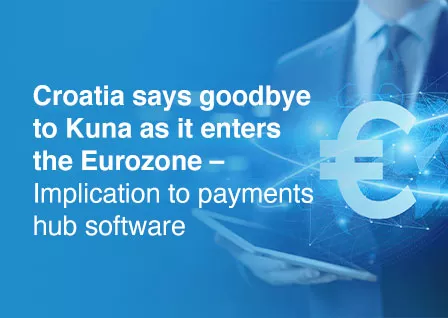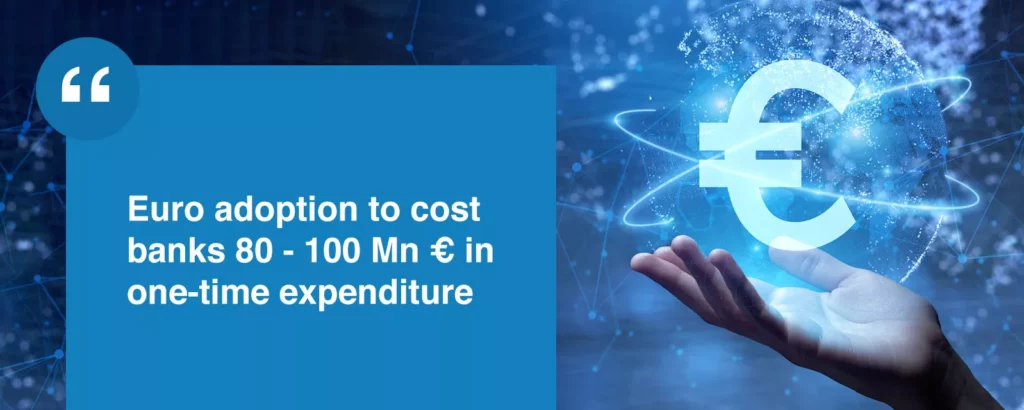- What we do
-
-
-
-
"Intellect’s continued dominance at the IBSi Sales League Table underscores its pioneering role in the fintech industry. Their commitment to innovation, exemplified by the groundbreaking eMACH.ai platform, continues to set a high benchmark in Retail Core Banking, Transaction Banking, and Lending. Intellect’s solutions are not only reshaping the present landscape but are also poised to lead the evolution of financial services globally, driving unprecedented advancements and customer-centric solutions."

Robin Amlôt
Managing Editor at IBS Intelligence
-
-
-
- Company
-
-
-
-
"Intellect’s continued dominance at the IBSi Sales League Table underscores its pioneering role in the fintech industry. Their commitment to innovation, exemplified by the groundbreaking eMACH.ai platform, continues to set a high benchmark in Retail Core Banking, Transaction Banking, and Lending. Intellect’s solutions are not only reshaping the present landscape but are also poised to lead the evolution of financial services globally, driving unprecedented advancements and customer-centric solutions."

Robin Amlôt
Managing Editor at IBS Intelligence
-
-
-
- Knowledge
-
- Our Events
- Contact Us
Experience AI-Powered Payments at NACHA Smarter Faster Payments 2025
Read More News FlashUnlocking Africa’s Trade Finance Potential: Driving Growth Through Digital Innovation
Read More News FlashiGTB Pulse Newsletter February 2025
Read More News FlashGlobal Trends Wholesale Banking for 2025
Read More News FlashTransaction Limits Management (TLM): The MRI for Corporate Payments – Precision, Clarity and Confidence
Read More News FlashElevate Your Real Estate Collections: Speed Up Your Cash Flow - Turn Days into Dollars
Learn More



Croatia says goodbye to Kuna as it enters the Eurozone – Implication to payments hub software
Croatia says goodbye to Kuna as it enters the Eurozone – Implication to payments hub software
Fare-thee-well Kuna
The world is now a global village and is highly interconnected. Small changes in far off corners can impact countries far and near and systems and platforms everywhere. One such change is the migration from Kuna to EUR that is coming up this New Year. Read more to understand the reasons for the migration and what CIO’s and product managers across banks need to ensure from a payments and cash management angle
As Croatia bids adieu to Kuna starting 1st Jan 2023, it places its bets to bring some semblance to the Balkan country amidst mounting inflation and precarious geopolitical headwinds rattling Europe. With this move, Croatia will become the 20th member of Eurozone.
But what does this move have in store for Croatia?
“The euro brings resilience,” Ana Sabic of the Croatian National Bank told media, arguing that Zagreb will, if needed, have access to more favourable borrowing conditions amid economic hard times.

The Croatian banking sector includes twenty banks and four home saving banks with predominately foreign ownership. The expected euro adoption will cost local banks about 1 billion Kuna annually in lost conversion fees, but the switch will reduce currency risks and improve stability, according to the national association of banks. Euro adoption is also expected to cost banks between 80 and 100 million euros in one-time expenditure aimed at adapting their IT services and ATM networks.
Primary objective of this move can be encapsulated as the following:
- Expected to prevent currency risk and enhance economic resilience
- Improvement in standard of living and growth rates via stabilized interest rates
- Price stability – inflation cannot be over the average inflation rate of 3 member states
- Sustainability of public finance – the general country deficit to GDP ratio must not be over 3% and the general country debt to GDP ratio must not be over 60%
- Convergence of long-term interest rates – interest on long-term government bonds may not supersede referent values of interest on bonds of the 3 member states
- Attract investments – Enhancing growth
For the first two weeks of Jan 2023, both the currencies Kuna (HRK) and Euro (EUR) would be in circulation whereas businesses are expected to print prices in both currencies till the end of 2023.
While a lot of hopes have been pinned on this move with respect to enhancing the economy and stabilising prices, this would have certain implications on the landscape of payments software as well. These implications are not just for Croatian banks, but banks across the globe that have payments traffic with Croatia. So if you are a banker in UK or USA or Canada, do not ignore this article.
What’s in it for the world of payments, you wonder?
Well, when it comes to payment hubs, some of the modifications that need to be incorporated include:
- Currency master table– HRK record to be closed on the midnight of 31-12-2022
- Exchange rates table– Rates against HRK can be marked closed
- Currency level correspondents – If your payment hub had a HRK correspondent for Croatia you have the option of using a EUR correspondent in Croatia or a EUR correspondent in any other EU country
- Country level correspondent– If your payment hub had a HRK correspondent account at the country level, you may want to change this to a EUR correspondent.
- Currency-country level correspondent– Some payment platforms maintain correspondents for a combination of currency and country. This may need to change for banks maintaining multiple HRK correspondents for Croatia.
- Holiday Calendars– If your payment hub maintained holiday calendars for HRK that record is to be closed w.e.f 01-01-2023.
- Typically a “Country-Master Table” will have a flag called “EU-Country” with value as Y/N. For Croatia, w.e.f 01-01-2023 this flag will need to be updated to Y.
- Standard settlement instructions(SSI) – if your payment hub maintains or uploads SSI (from SwiftRef® / Bankers Almanac®) you need to ensure that HRK is no longer in the upload.
- Payment initiation screen– If a payment is entered with debit account currency as HRK or credit account currency as HRK – it should be rejected after 31-12-2022. Payments Upload routines and API Validation code should ensure that HRK is no longer a valid currency post cut-off date. (XSD definitions and Swagger specs need to be checked as well to replace HRK with EUR)
- Payments warehouse queue– if your payment hub has warehoused transactions in HRK pending with value date > 01-01-2023, you need to manually contact clients and ensure that the transfer currency is changed to EUR.
- HRK Nostro and Vostro accounts will get converted into EUR on 01-01-2023. Nostro reconciliation systemsshould be able to handle this.
- Since Croatia will now be in EUR, ensure that the Charge-Whom (MT103, Tag 71A) is set to SHAfor any payments within the Euro Zone.
- Standing Instructions (SI’s) – Payment Hubs with periodic standing instructions in HRK or from domestic currencies to HRK will need to be amended and it may be advisable to cancel and rebook these as new SI’s.
- Forward Contracts booked for expected future payments in HRK will need to be cancelled and rebooked in EUR
- Beneficiary Databases and contact books in payment hubs and digital channels will need to be relooked at in case currency was part of the beneficiary data.
Impact on Digital Banking Channels includes:
- Banks must ideally run a bulletin broadcast that HRK is moving to EUR w.e.f 01-01-2023
- Payment Initiation forms on Internet Banking and mobile banking apps need to give pop up alert if transfer currency is entered as HRK
- Balance and Transaction reporting channel applications must show HRK balances in EUR
- Base currency / local currency changes from HRK to EUR
- Balance and transaction (BTR) history and account statements need to be correctly displayed as after 01-01-2023 it is EUR and before that HRK.
- Digital Transaction Banking channels covering Liquidity, Trade Finance, Supply Chain Finance, Collections and Receivables must ensure that the currency change is accounted for on all screens and processing
Impact on Customer Information Management Systems & Channel Onboarding / Entitlement systems includes:
- Revamp of holiday calendars and currency rate masters
- To check for any corporate specific entitlement rules for HRK and migrate them to EUR
- Conversion of all HRK accounts to EUR on the conversion date
- Typically a “Country-Master” will have a flag called “EU-Country” with value as Y/N For Croatia, w.e.f 01-01-2023 this flag will need to be updated to Y
- Channel limits if maintained in HRK will need to be reset to EUR

EURO migration will also have an impact on core banking systems, treasury systems, limits management systems, GL systems and many others. For instance Liquidity Management systems that process sweeps and do notional pooling need to check if their cash management structures have HRK accounts. Back Valued Transactions post the cut over date will need to result in accurate interest recalculation in Core DDA platforms and Liquidity systems. Similarly future dated cheques and collections or Direct Debit mandates in HRK will need to be migrated carefully to EUR. Trade Finance Systems which had LCs or Guarantees booked in HRK will need to migrate these instruments to EUR and Virtual Account Management systems with accounts in HRK will also be impacted.
Such transitions are not exactly one-off in today’s age. For example other nations may join the EUR or there is even a possibility that a nation may leave the EUR and go back to its home currency. Software systems and payment hubs need to be resilient, configurable and robust to accommodate such changes. Payments hub that are developed on a composable Microservices and API First cloud native architecture can help banks cope with such changes with minimal downtime.
Intellect Payments provides a configurable rules engine which offers the flexibility to quickly add new functionality in response to changing industry & customer requirements, without code changes. This helps to reduce the burden of regulatory compliance, accelerates time-to-market of new payment products and services and keeps you ready for the changes beyond your control.





























